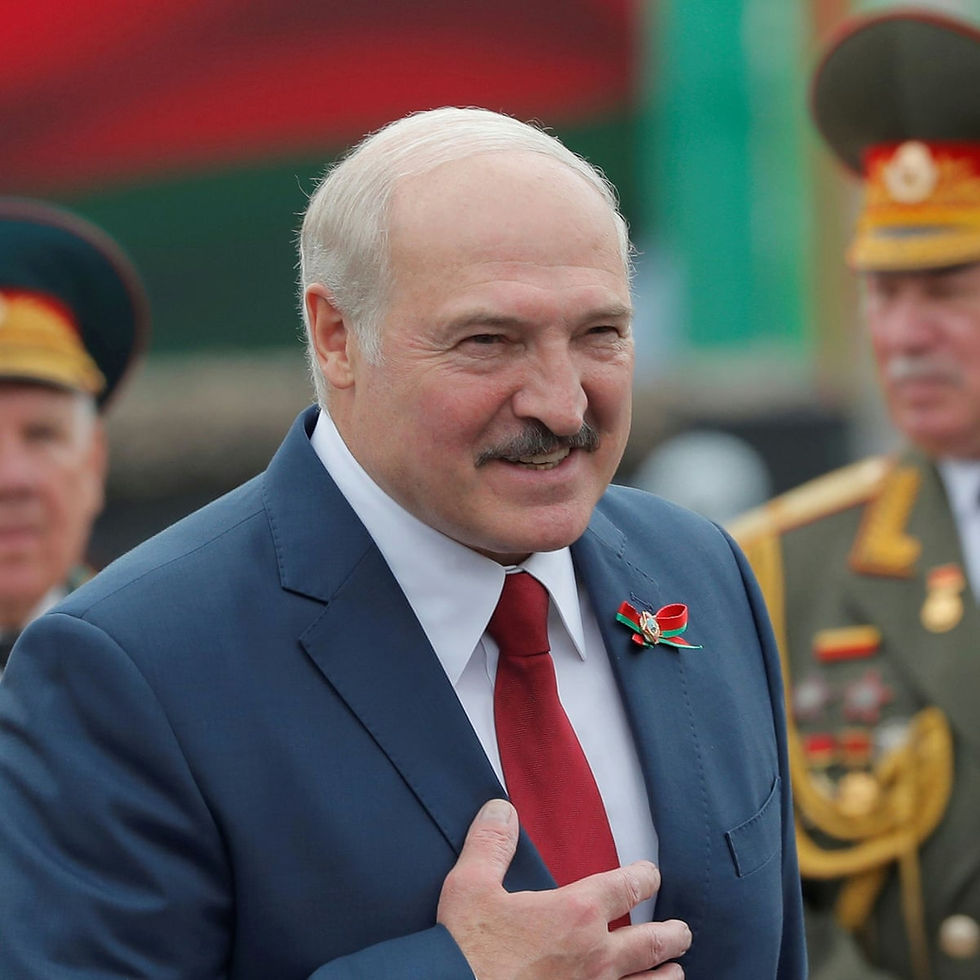Free and fair elections are one of the standing pillars of democracy. But has the fairness of these elections been compromised in Belarus?
What’s happening?
On August 9, 2020, the streets of Belarus were filled with more than 200,000 protestors demanding a democratic revolution, after President Alexander Lukashenko won a landslide victory with an 80 percent majority in the Presidential Elections for 2020. The protest instilled new life into the air as the People of Belarus for the first time got a hope of freedom, but it didn’t last long, the protests were met with brutal retaliation. This isn’t a sudden trend, the people, for a long time have been left anguished and frustrated by the President due to his iron-clad rule, authoritarian tendencies and problematic policies.

What has led to this?

President Alexander Lukashenko, often called “Europe’s last Dictator” a term he himself doesn’t deny, was first elected in 1994 by means of fair and free elections with the campaign slogan “Neither with the left nor with the right, but with the people” and promised to fight the elite and cherished his love and admiration for the common man. But soon, he became a Leader of the Elites themselves, rather than fighting them as he originally promised. Every Presidential election since has been littered with accusations of being falsified. These accusations have been raised by the country’s opposition as well as by international election observers, who were not even allowed to observe this year. The faltering economic curve and the mismanagement of coronavirus has added fuel to the fire in 2020. He dismissed the fears about Covid-19 by calling it ‘psychosis’ and suggesting people to drink vodka, take saunas and play ice hockey.
Political elite, who stood in opposition or were critical of his governance, were jailed, exiled or they suddenly disappeared. Tikhanouskaya, a pro-democratic blogger was barred from elections and is in jail since May. After being incarcerated, his wife, Sviatlana Tsikhanouskaya stood up for elections as a promising candidate. She was the major opposition, and had enormous support while campaigning, but secured only 10 percent votes and had to flee to Lithuania, for safety. “All opposition and dissent is quickly and brutally quashed” said Nigel Gould Davies, a former British Ambassador to Belarus. He went on to say that “There is no party in Belarus. There are no independent power bases. It is just him.”
The Response
1. The Domestic Response
In 2010, similar protests were subdued, but this time, the people were more determined than they had ever been before as they took to the streets. The President is facing the strongest opposition in his 26 years rule, But the majority of dissent is usually quashed. The peaceful protestors were met with tear gas, stun grenades, rubber bullets, and batons, from the police force, as the President tried to maintain his iron- clad rule. Thousands of people have been detained, internet and mobile services have been shut down, and at least one protestor has died. The increase in police brutality has given way to smaller protests in broad daylight. After nearly 2 weeks, the protests still continue despite the ongoing pandemic, increasing pressure on the President to step down.
2. The International Response
On one hand, the United States and several members of the European Union have condemned it, calling the elections neither free nor fair, with E.U.’s foreign ministers threatening to impose sanctions on Belarus officials involved in violence, on the other hand, China unequivocally supported the election results and Russia congratulated President Lukashenko.
What does the future hold?
With the police force being loyal to the President, he shows no signs of conducting new elections, negotiating with the opposition or stepping down. He may be waiting for the protests to dissipate, protracting the political process. But, the political and international pressure on the President is higher now than it has ever been and for the first time, his Presidency might actually be under threat. This has been taken note off by him as Mr. Lukashenko has requested Vladimir Putin to provide him with military help to suppress the unrest in the country.

The pressure from the E.U., in the form of sanctions and its refusal to accept him as the President, may encourage negotiations. While domestically, the protests have pierced the notion that he is invincible. There are signs that Lukashenko’s rule may dwindle down, with people showing no signs of slowing down or stopping until justice is served, but it is not going to be an easy process.
Sources:
The New York Times
BBC
~Anavi Panjwani

Comments